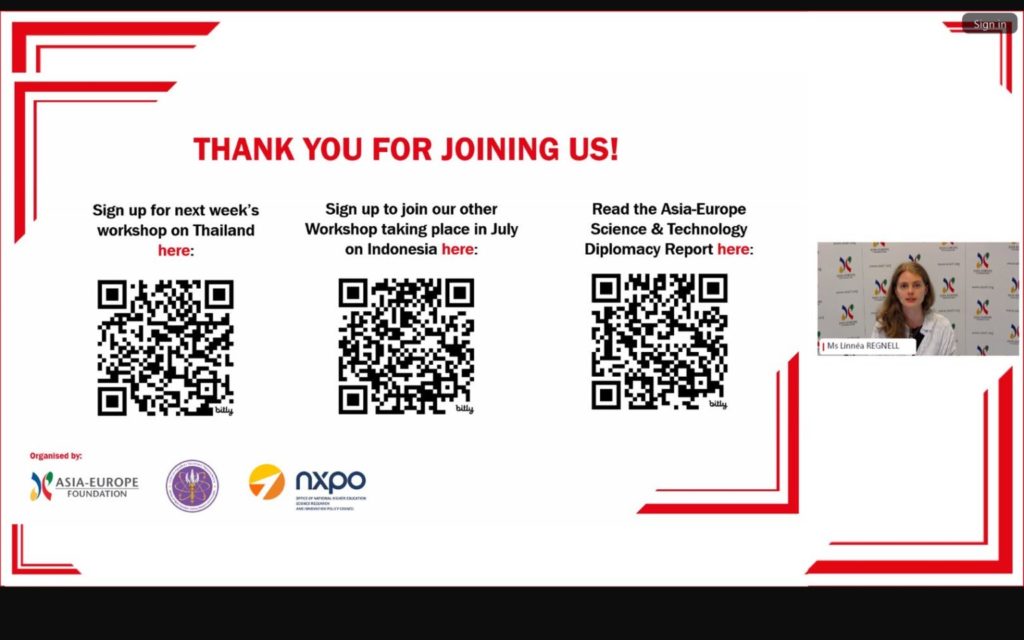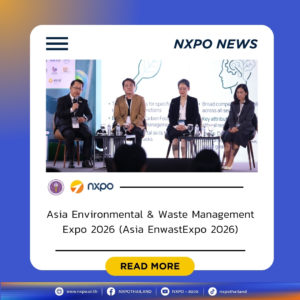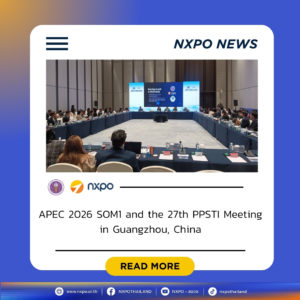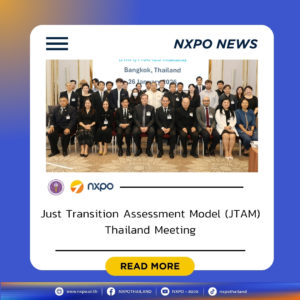NXPO, in collaboration with the Office of the Permanent Secretary of the Ministry of Higher Education, Science, Research and Innovation (MHESI) and the Asia-Europe Foundation (ASEF), is hosting a workshop series titled “Navigating Science and Technology Diplomacy Ecosystems.” The series comprises three consecutive online workshops throughout July 2025, with the first session held on 7 July 2025.
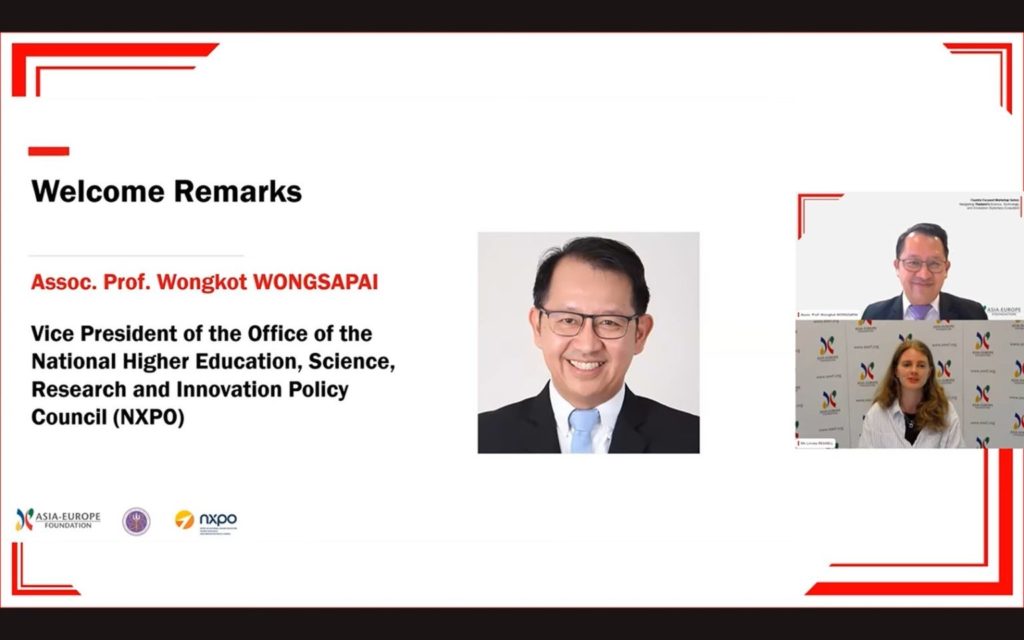
Part of the Asia-Europe Science and Technology Diplomacy initiative, this workshop series builds upon insights from the Asia-Europe Science & Technology Diplomacy Report: Mapping Science & Technology Diplomacy Strategies and Actions in the Two Regions, published in 2025. The report maps country strategies, priorities, policy tools and their performance, identifying Thailand as an emerging leader in Southeast Asia. The country’s approach integrates conventional and new models of science and technology diplomacy with innovation diplomacy to strengthen competitiveness and sustainable development. Thailand’s Science, Technology, and Innovation (STI) diplomacy is characterized by a decentralized, multi-stakeholder model, enabling diverse actors to contribute toward shared national objectives. The country has positioned itself as a regional hub for collaboration in biotechnology, green technology, and space technology.
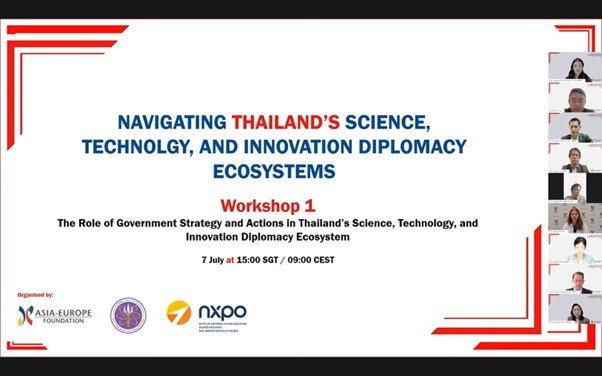
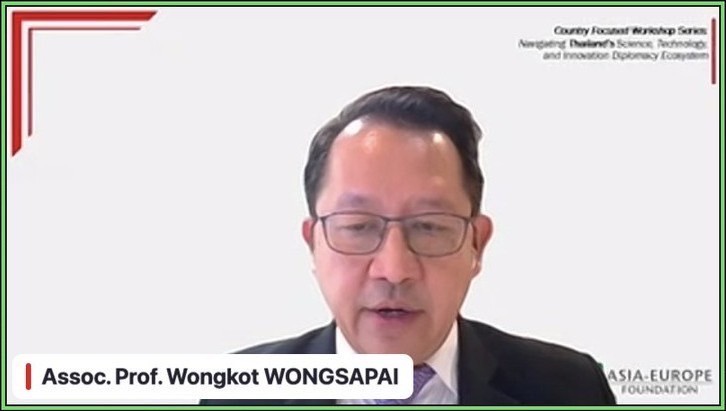
The first workshop explored the role of government strategies and practices in Thailand’s STI diplomacy ecosystem. It opened with welcome remarks from Mr. Zhang Lei, Deputy Executive Director of ASEF; Ms. Chulamanee Chartsuwan, Thai Governor to ASEF; and Assoc. Prof. Wongkot Wongsapai, Vice President of NXPO. This was followed by a keynote address by Ms. Salinee Phonprapai, Deputy Director-General of the Department of International Economic Affairs. A panel discussion followed, featuring Assoc. Prof. Dr. Pongpan Kaewtatip, Director of the Intelligence Unit: Science, Research and Innovation for Economic Development, Thailand Science Research Innovation (TSRI); Dr. Kanchana Wanichkorn, Director of Sectoral Development, ASEAN Economic Community Department, ASEAN Secretariat; and Mr. Thitidej Tularak, Minister-Counsellor (Higher Education, Science, Research and Innovation) at the Royal Thai Embassy in Washington, D.C. The panel was moderated by Dr. Pranpreya Sriwannawit Lundberg, Director of International Policy Partnership at NXPO.
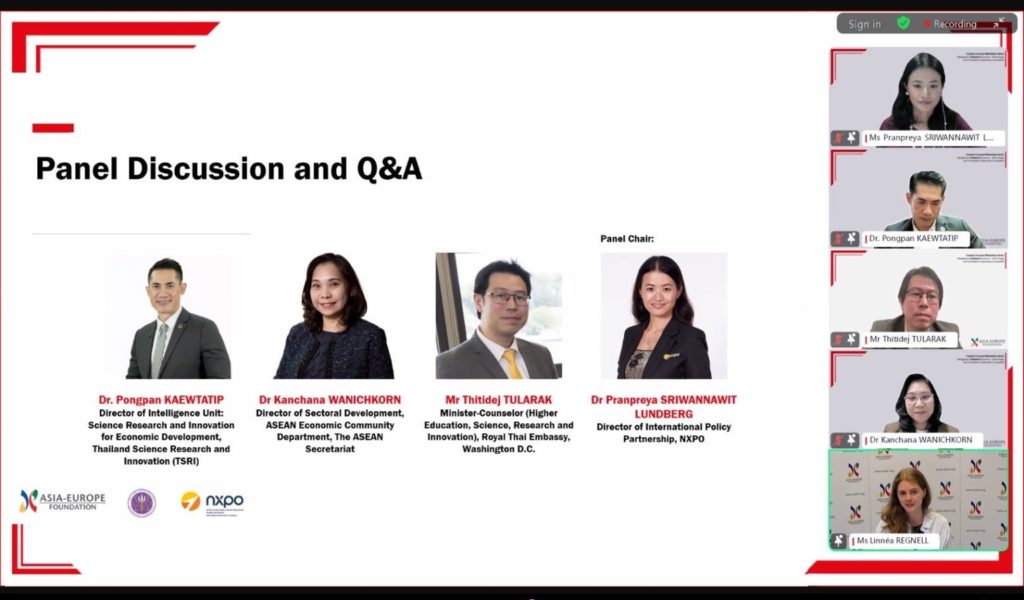
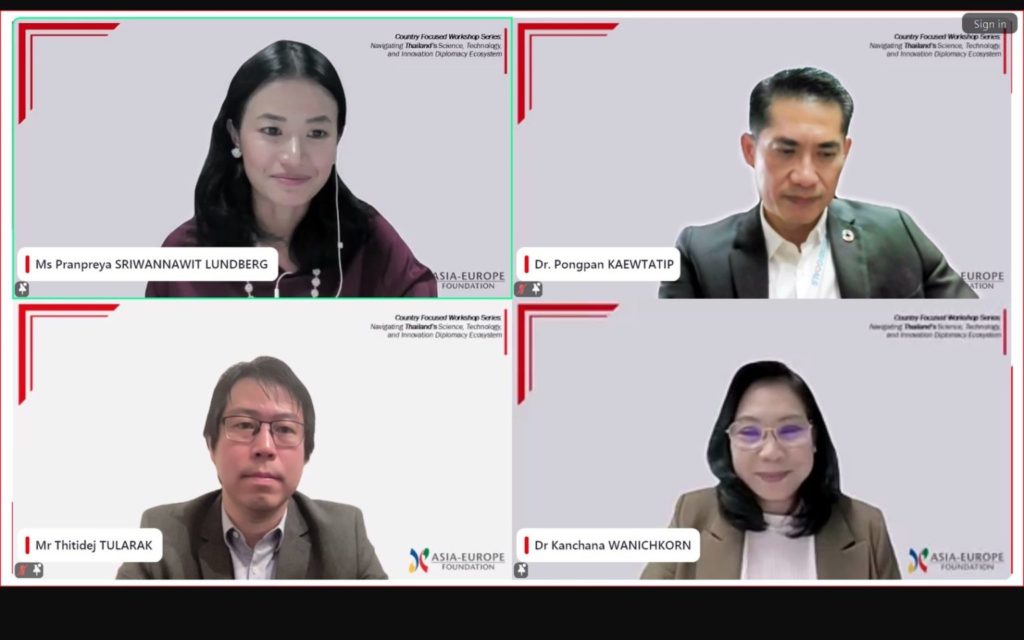
Throughout the event, speakers and panelists provided a comprehensive overview of the key actors, roles, and mechanisms in Thailand’s STI diplomacy landscape. Discussion highlighted the close collaboration between the Ministry of Foreign Affairs (MFA) and key STI agencies in advancing Thailand’s STI diplomacy agenda. Science diplomacy has been incorporated into Thailand’s 20-Year Foreign Affairs Master Plan (2018–2037) as a pillar under its economic diplomacy strategy, emphasizing the importance of promoting international knowledge exchange and best practices in technology and innovation for national development.
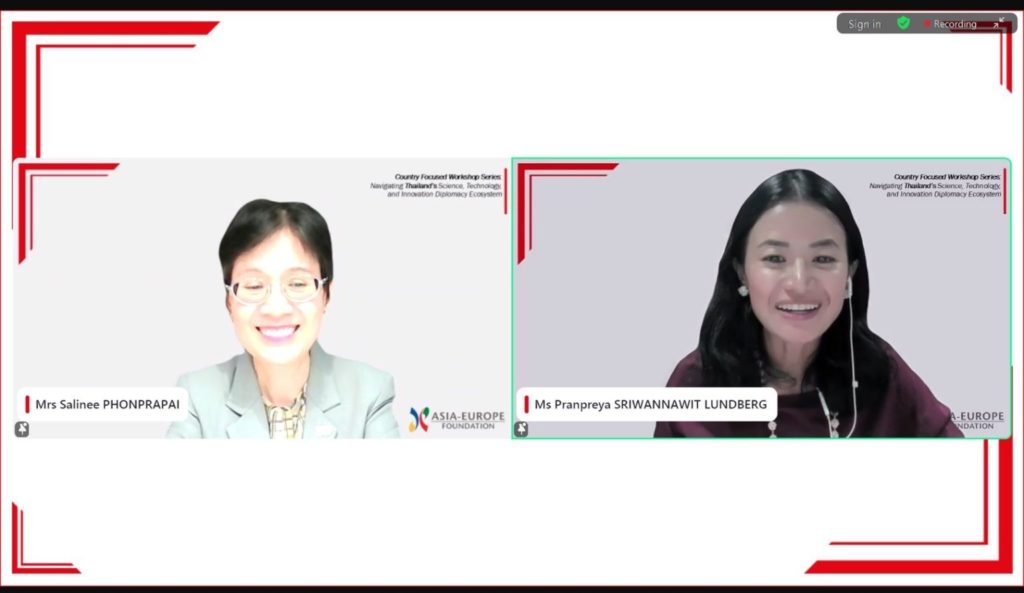
A recording of the first workshop is available for viewing at:
The second workshop, focusing on the role of academic and research institutions, and the third workshop, addressing the role of the private sector, will be held on 14 July and 21 July 2025, respectively, from 14:00 to 16:00 hrs. Updates on this workshop series are available at:https://asef.org/projects/navigating-thailands-science-and-technology-diplomacy-ecosystem/
